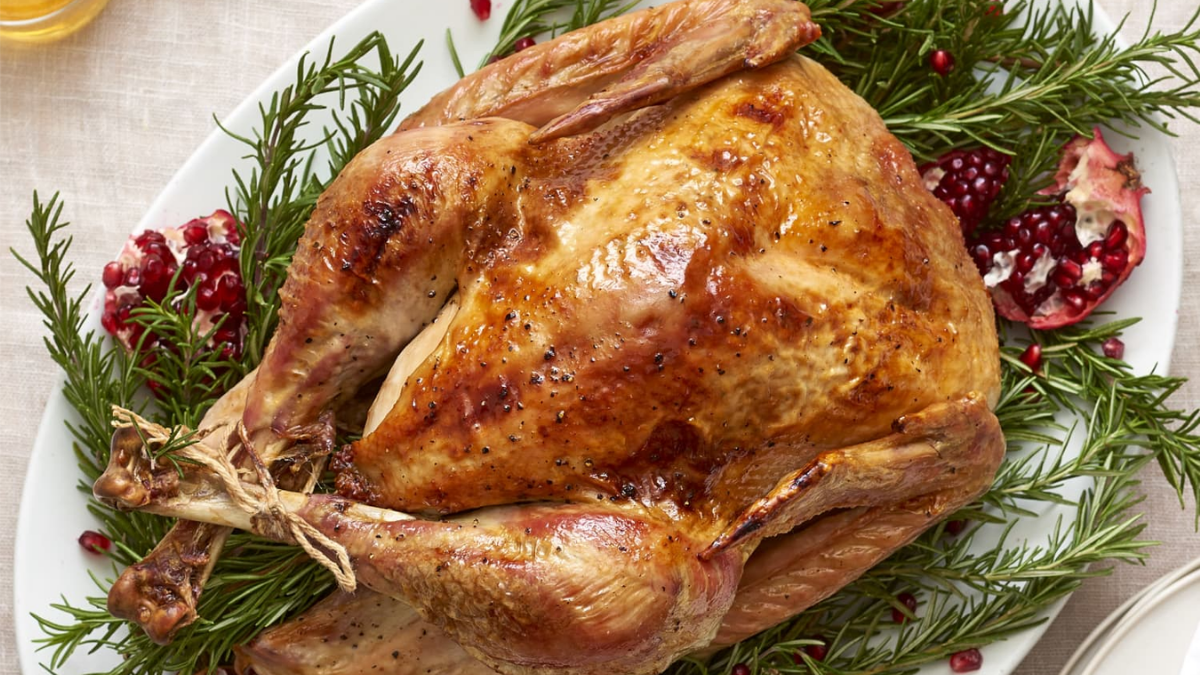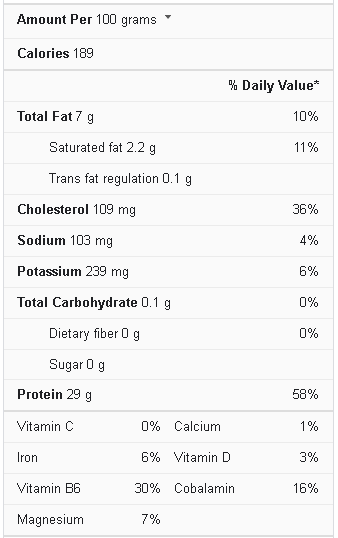The turkey is a massive North American bird native to the continent. It is both hunted in the wild and raised on farms. Its flesh is a highly nutritious protein source that is consumed all over the world. This page covers everything to know about turkey, including nutrition, calories, and how to incorporate it into your diet.
Turkey Nutrition Facts
What Is Turkey Meat?
Turkey meat, usually known as simply turkey, is the meat of turkeys, both domesticated and wild. It’s a popular fowl dish, particularly in North America, where it’s served during culturally significant events like Thanksgiving and Christmas, as well as in everyday cooking. Turkey is popular sandwich meat and an alternative to ground beef throughout the year, but it is prevalent during the holidays.
Turkey’s meat is produced in the United States, the world’s top producer. Every year, around 250,000,000 turkeys are farmed for consumption. It includes a nutritional breakdown of turkey and an in-depth look at its potential health benefits, what kind of turkey to buy, healthy turkey recipes, and any potential health hazards associated with eating the meat of this famous bird.
Potential Health Benefits
Turkey has several potential health benefits:
Healthy Source of Protein
Turkey is a high-protein food. Protein is required for muscle development and maintenance, and it gives cells shape and aids in transferring nutrients throughout the body. A high-protein diet can also help with weight loss by increasing feelings of fullness. Furthermore, several observational studies link red meat to an increased risk of colon cancer and heart disease, suggesting that turkey may be a healthier choice than red meat. On the other hand, other research argues that processed meat, not red meat, is harmful to one’s health.
Loaded With B Vitamins
Turkey meat is exceptionally high in B vitamins, such as B3 (niacin), B6 (pyridoxine), and B12 (cobalamin) (cobalamin). Two thick slices of turkey (84 grams) provide 61% of the daily value for vitamin B3, 49% for vitamin B6, and 29% for vitamin B12.
These B vitamins have many benefits:
- B3 is a B-complex vitamin (niacin). This vitamin is necessary for cell communication and efficient energy generation.
- B6 is a B-complex vitamin (pyridoxine). This vitamin aids in creating amino acids and the production of neurotransmitters.
- Vitamin B12 is a water-soluble vitamin. B12 is required for DNA synthesis and red blood cell development.
- Turkey is also high in folate and vitamins B1 (thiamine) and B2 (pantothenic acid) (riboflavin)
Rich Source of Minerals
Selenium, zinc, and phosphorus are abundant in turkey. Selenium aids in producing thyroid hormones, which control your metabolism and rate of growth. Zinc is a mineral required for various body functions, including gene expression, protein synthesis, and enzyme activities. Finally, phosphorus plays an essential role in bone health. Turkey also contains modest levels of magnesium and potassium.
Processed Varieties Maybe High In Sodium
Despite the many advantages of turkey, it’s crucial to restrict processed turkey products because they might be high in salt. Processed turkey ham, sausages, and nuggets, for example, may contain a lot of salt. Sodium is commonly used as a flavor enhancer or as a preservative. According to research, excessive salt consumption has been linked to an increased risk of stomach cancer. On the other hand, reduced salt intake may help to lower blood pressure.
Risks
Processed turkey products can have a lot of salt, which is terrible for your health. Many processed types of meat are smoked or contain sodium nitrites as a preservative. These react with naturally occurring amines in meat to generate N-nitroso compounds, recognized carcinogens. Processed meats have been linked to the development of cancer in studies. Obesity, heart disease, high blood pressure, high cholesterol, cancer, and infertility are linked to meat consumption. Reduce your intake of any processed turkey products to a bare minimum. The mineral selenium is found in Turkey. In several studies, higher selenium intakes have been linked to a lower risk of colorectal, prostate, lung, bladder, cutaneous, esophageal, and stomach cancers.
How To Add It To Your Diet?
You may incorporate turkey into your diet in a variety of ways. Year-round, you may get fresh or frozen turkey at your local grocery store or butcher shop.
This meat is commonly roasted in the oven, but it can also be slow-cooked until soft in a slow cooker or crockpot.
You can add it to the following dishes:
- Salads- Add it hot or cold to salads as a good protein boost.
- Curries- Turkey can be used instead of chicken in curries.
- Casseroles-This meat works perfectly in casseroles.
- Soups- Not only is turkey meat great in soups, but you can also make your stock from turkey bones.
- Sandwiches- Combine with your favorite toppings and spreads, such as lettuce, tomato, mustard, or pesto.
- Burgers- Ground turkey can be mixed with stuffing or breadcrumbs to make burger patties.
Turkey can also be purchased minced and used for ground beef in dishes like Bolognese spaghetti or cottage pie. As previously stated, processed turkey items, such as sausages and sandwich meat, should be avoided.
Fast Facts On Turkey
Dark meat has more vitamins and minerals than white meat but more fat and calories. Tryptophan is an amino acid found in turkey, and people are supposed to desire to nap after a big Thanksgiving feast because of this. While turkey does contain tryptophan, it is not sufficient to cause tiredness. Tryptophan is found in all meats. Turkey on Thanksgiving should not make you sleepy any more than a pork chop on a regular evening.
- Dark turkey flesh has more vitamins and minerals and more fat and calories than white turkey meat.
- Cook the turkey until the internal temperature reaches 165 degrees Fahrenheit.
- Turkeys raised on pasture have a higher omega-3 content than turkeys raised in factory farms.
- Removing the skin of a turkey also removes much of the fat content.
Conclusion
Turkey is a lump of popular meat abundant in protein, vitamins, selenium, zinc, and phosphorus. Due to its high vitamin content, it may help with various health issues, including muscle growth and maintenance. On the other hand, processed kinds should be avoided because they are heavy in salt. This meat works well in soups, salads, curries, and various other meals.



